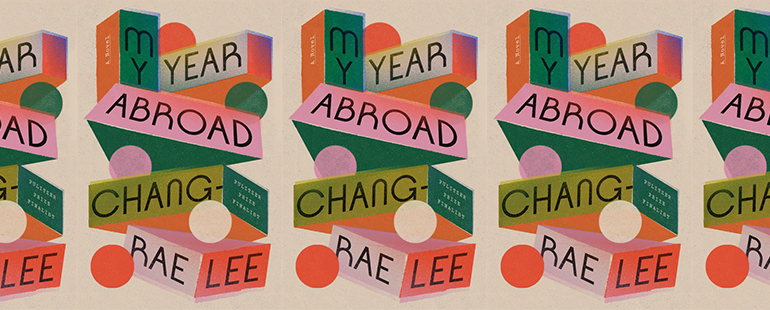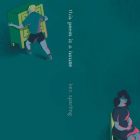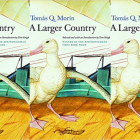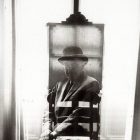“I absolutely wanted to present an upturned tale of exploration and resource gathering and success”: An Interview with Chang-rae Lee

In one of the most uncomfortable scenes in Chang-rae Lee’s sixth and newest book—and there are many uncomfortable scenes—women line up in heels and bikinis on the stage of a Macau brothel euphemistically named “Evergreen Shores.” As other men fight over a white sex worker, the American twenty-something narrator, Tiller, is urged to select one of the remaining Asians. Before he can, the darkest-skinned woman grabs his hand, leads him to her thin-walled room, and tells him he is a “nice man”: “You know why? Because you let me choose you,” she says. “I am not chosen very often, because of my skin.”
In a few lines, Lee shows how the bodies of Asian women are simultaneously commodified and devalued––particularly in the context of gendered service, a notion the US is confronting after the murder by a white man of eight people, mostly women of Asian descent, at spas in Atlanta. The fetishization of these populations is rooted in colonial histories. In Indochina, French doctors subjected women to invasive exams for venereal disease, at times using tainted instruments that themselves spread illness; that illness was then used to accuse women of being prostitutes, which ironically consigned them to be exactly that. During the American military interventions that upended economies in Korea and Vietnam, women with few other options for employment resorted to servicing the same people who screamed racial slurs and leveled villages. Empire is effective at driving a bargain: devaluing people, then buying their labor.
Lee’s novel, My Year Abroad, illuminates the complex economic and cultural exchange between East and West through humorous and often grotesque scenes: a Chinese-Thai chef directs two white men in thong sackcloths to grind curry paste with a gym-sized mortar, a reversal of the white extraction of Asian labor; a Chinese woman inserts a scope up a drugged man’s penis, inspecting his body with the same dehumanizing gaze as patrons at the 1904 Louisiana Purchase Exposition, which uprooted entire Filipino villages for popular display. These surreal scenes question norms of race, money, privilege, and consent, and they continue Lee’s work exploring immigration and double consciousness that started with 1995’s Native Speaker.
What could be a bitter novel, however, is sweetened by the naiveté of Tiller, a mostly white college student who ekes out an existence caddying golf clubs and washing dishes for the richer residents of Dunbar, a suburb of successful and entitled professionals. Tiller, who uses verbs like “shaka’d” unironically, circles the periphery of Dunbar’s skiing holidays, steakhouse dinners, and white-collar salaries. But his life circumstances are elevated when he meets Pong, a Chinese-American chemist-cum-businessman who sees, or claims to see, Tiller’s natural genius (a sensitive palate, a karaoke voice). Tiller gladly yokes his destiny to Pong’s by playing hooky from university to accompany him on a glitzy business trip to China: “maybe I was the forlorn Pip,” he says, “unknowingly awaiting a patron whose mere presence would fire up this rusted piston of a world and rocket me forth on its newly struck axis.” The problem with propulsion, of course, is it stops.
The title My Year Abroad nods to these adventures in Asia as well as to a separate storyline in Stagno, Dunbar’s poor cousin, a place where people work with their hands instead of their minds. In the aftermath of his travels, Tiller finds refuge there with a single mom, also one-eighth Asian, like him, and takes comfort in creating a domestic life with her and her son—made possible by Pong’s ATM card, which reliably grants cash installments of five hundred dollars. The desire to seek homely quietude after an adventure abroad echoes Candide; Tiller wants to become true to his name, breaking up the hard ground of trauma to seed a new life. But that life keeps slipping from him: “I wanted to hide out forever, full stop, to preserve the wonderful thing we had in safe amber. But safety is a figment, and the second you achieve it your great wonderful thing becomes virtual and lifeless.” Philosophically, the novel arrives at a nearly Buddhist epiphany: the only thing constant is change.
In such traditions, time is often characterized as circular. Lee’s novel also circles back in time: chapters alternate between Tiller’s present in Stagno and his past with Pong, though both stories are relayed in the same past tense, imbuing the present with fuzziness and the past with clarity. This is also the way people experience trauma, reliving past experiences in real time. Traumas provide Tiller a mechanism to understand both his whiteness and his Asianness, his status as a self-described “semidiasporic postcolonial indeterminate” in a global, rapidly evolving economy.
The novel discomforts racial hierarchies as well as the body. Lee employs all the senses to do so, with a particular focus on taste––though not in the warm nostalgic mode of many other diasporic writers. Instead, we see food’s potential to save or sicken. Watermelons feed Pong during long, dry summers of childhood; banana-shaped candies, laced with drugs, allow Tiller’s privates to be scoped. Pong and Tiller together attempt to commercialize jamu, a traditional Indonesian health tonic; the recipes are created by a white man (a mockery of real-word culinary cultural appropriation), and their unintended effects are to enable exhibitionist sex and retributional murder. The extreme effects of consumption illustrate broader patterns of capitalist health and sickness: man is richest before his fall.
In a recent conversation, conducted shortly before last week’s shootings, I spoke with Lee about the novel’s themes of power and capitalist excess.
April Yee: I found the voice of this twenty-year-old narrator super compelling. I was wondering if you could walk me through how you decided on the voice.
Chang-rae Lee: I was looking for a narrator who could be inspired by the figure of Pong, the Chinese businessman, and pretty early on I realized that it wasn’t going to be someone Pong’s age, a middle-aged person. I wanted a fresher psyche, someone who was still forming himself––and most importantly, open and vulnerable to ideas, experiences, and the world without having a lot of set beliefs and opinions about those things. That’s when I decided it would be a young person. So I decided on a college student who wasn’t quite a college student: collegiate, but taking a break.
In terms of the voice, I felt my way into it. What I typically do is test certain voices out––different forms, with different cadences and rhythms and, most importantly, a certain kind of positioning. I found early on that I liked this particular voice because it felt like it had a lot of range to it. It felt like this was a voice that could draw from––and was open to drawing from––many different kinds of sources: pop culture, social media, academia. That was the sense that I liked the most, that it was plastic. Like warm plastic: moldable, stretchable. Because I knew that in the ways in which the world would exert itself on him and influence him, that he would be like plastic, physically. I wanted something psychically and linguistically that would match that.
AY: I want to pick up on the idea of plastic because besides its moldability, I think of the actual material, which we associate with a lot of goods made in China. So much of this novel is about global commerce and this idea of Tiller as an almost white or nearly white protagonist going and finding riches through Asian Americans or in Asia––reversing the immigrant narrative we have in the U.S. I kept thinking of it in contrast to Native Speaker. I was wondering about this shift in the direction of immigration and the direction of the flow of riches.
CL: I absolutely wanted to present an upturned tale of exploration and resource gathering and success. One of the tales I wanted to upturn was the typical tale of a Westerner going East and finding wisdom in some exotic locale with odd people. I wanted this Westerner––my Westerner—to be in a different kind of position to the places and people that he would encounter. Namely, that he was going to be the one without power, without resources, without control. That was definitely something that I had in mind as I approached the story and approached the characters and what would happen to them.
Early on, the narrator says something about how this is not one of those fish-out-of-water tales where the fish enhances the local water. You know, like in that movie The Last Samurai with Tom Cruise, where the white guy ends up being an incredible samurai and saves the day for the local Japanese people. I wanted Tiller to be the object of scrutiny, the object of inquiry. And in that way, he would begin to understand his positioning in the world is his ethnic roots. Yes, he is Asian-curious, but I wanted him to be able to begin that examination and investigation not from a position of strength and ownership, but from a position of wonder and naiveté.
Commerce-wise, yes, [Pong and Tiller are] trying to extract value and resource from their endeavors like any capitalist will. But I hope, too, that I’m having some fun at Tiller’s expense about the mechanisms of that extraction and the mechanisms of capitalism and how he can be subsumed by them because he’s not really thinking about what’s really happening. At every turn, I wanted to reposition him as a hero. He has enough agency in his mind to recognize the new landscape. But I didn’t want him to be the master of it.
AY: I was also thinking about how he occupies this liminal space as a one-eighth Korean, seven-eighths white person. I’m thinking about other instances in literature, like in Viet Thanh Nguyen’s The Sympathizer, where a mixed-race narrator is employed to be incisive about race. But here race is almost a blind spot for Tiller. What kind of authority do these types of characters have?
CL: I think the authority is what one comes to believe about one’s authority. In other novels, particularly with older narrators––say with Viet’s character and even in my previous novels––people are much further along in their reckoning of all the ways in which they’ve negotiated race and their place in the culture. They’re at a point at which they’re ready to rage, break out, do all these things.
With Tiller, he’s a neophyte in so many ways, so his positioning is so much more provisional. Not that our positioning isn’t always provisional because of life and experience and the way the world presses up against us. But with Tiller, he’s someone who is provisionally provisional. He has a conviction––maybe not stated, but maybe subconscious––that he doesn’t really know where he is yet. In that sense, this is a coming-of-age novel. He’s just beginning to think about his positioning. For me that was exciting, that I could have him run through all the ways in which he’s at the center, he’s othered, he’s liminal.
AY: I want to pick up on this idea of position in relation to Pong. You said you created Tiller as a foil to Pong. Pong is almost like the Higgs boson, evading examination. Where did Pong come from?
CL: Pong is inspired by a friend of mine back in Princeton and some other fellows like him, people I thought of as a new kind of global immigrant––not the kind of immigrant who came in the early-twentieth century or mid-twentieth century, and certainly not the kind of immigrant my parents were. That’s a function of what our culture and our civilization are like now with so much information and so much data available to everybody. He was inspired by this fellow who—unlike my parents’ generation of immigrants––felt completely comfortable looking into, investing in, and talking to anybody and everybody about whatever he was interested in. I thought that kind of energy and exuberance and willingness to explore the culture was fascinating and said something not just about America, but about our globalized world.
I was originally thinking I would write a book about this guy, but I realized this was not just an American story. As Americans, we’d like to think of it as an American story, another example of American wonder and exceptionalism. But that’s not the case—guys like Pong are based all over the world: in the Middle East, in Europe, in Australasia. He just happens to be here in Dunbar. It was this kind of character who I felt was really astride the world. Even though he’s not a billionaire, he acts as if everything’s possible for him, and I love that idea.
AY: I want to ask about the harrowing brothel scene where Tiller, almost against his will, gets pulled into this encounter. What I found most interesting about it was that the prostitute in the brothel is theoretically serving Tiller, but she’s actually the most powerful person in the room. She’s directing the whole script. There seem to be all these interesting relationships around service in which the server is the empowered person throughout the book. In these capitalist ideas of exchange and service, is the power not where we think it is?
CL: Absolutely. In what should be patently clear relationships given inequities and power and resource, I’ve always been interested in how––if you really examine, if you really go underneath–– the power structure is not very clear at all, whether that person is cleaning your house or mowing your lawn or attending to you, sexually or emotionally. One thing that the economy of our civilization suggests to us is that power lies always in the people with the most resources. It does in the macro sense. But on the human level, I was interested in the idea that in fact there is all this ceding of power that goes on in what would normally be very clear-cut relationships––and especially with someone like Tiller, who is more innocent and more impressionable. That idea of service is one that we take far too much for granted. We have this illusion of our positioning when in truth it’s never even close to that.
AY: One last question. Are you working on another novel now?
CL: I’m working on a couple different things, and I’m not sure which one I’m going to follow. They’re both set in the 1970s in New York: one an interracial love story set in the South Bronx, Black and Korean, and the other about a camp for Korean American kids in upstate New York. I guess I’m interested in that time when I was younger––not autobiographical, but looking back to youthful days and innocence.
This piece was originally published on March 22, 2021.



